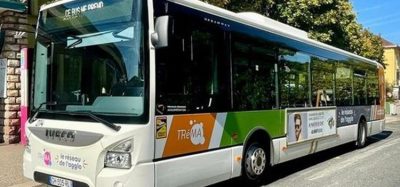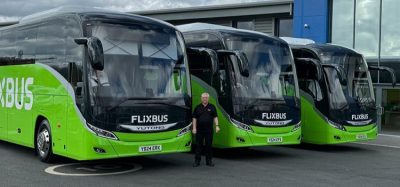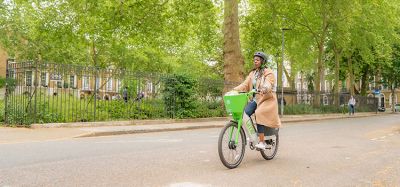Gathering widespread support for better public transport
- Like
- Digg
- Del
- Tumblr
- VKontakte
- Buffer
- Love This
- Odnoklassniki
- Meneame
- Blogger
- Amazon
- Yahoo Mail
- Gmail
- AOL
- Newsvine
- HackerNews
- Evernote
- MySpace
- Mail.ru
- Viadeo
- Line
- Comments
- Yummly
- SMS
- Viber
- Telegram
- Subscribe
- Skype
- Facebook Messenger
- Kakao
- LiveJournal
- Yammer
- Edgar
- Fintel
- Mix
- Instapaper
- Copy Link
Posted: 25 April 2012 | Stephen Joseph OBE, Chief Executive Officer, Campaign for Better Transport | No comments yet
The ‘British experiment’ with public transport has been watched by many in Europe – some with envy, some with a kind of horrified fascination. Deregulation and privatisation of the public transport market has gone further than in any other country – buses outside London were completely deregulated in the 1980s, and the railways privatised in the 1990s.
The results have been – to put it kindly – mixed. Public transport subsidies were reduced, at least initially, and lots of new services arrived. It is also worth saying that rail freight has flourished in the new environment, and has grown even during the recession. But for urban public transport, the results have been very varied.
The railways have seen huge growth in patronage – more people are now travelling by train than at any time for nearly 100 years. Railway companies sometimes argue that this is down to their commercial flair – others argue that there are underlying economic reasons for this growth, with road congestion, high oil prices, planning laws and economic restructuring with more city centre develop – ment in financial services.
The ‘British experiment’ with public transport has been watched by many in Europe – some with envy, some with a kind of horrified fascination. Deregulation and privatisation of the public transport market has gone further than in any other country – buses outside London were completely deregulated in the 1980s, and the railways privatised in the 1990s. The results have been – to put it kindly – mixed. Public transport subsidies were reduced, at least initially, and lots of new services arrived. It is also worth saying that rail freight has flourished in the new environment, and has grown even during the recession. But for urban public transport, the results have been very varied. The railways have seen huge growth in patronage – more people are now travelling by train than at any time for nearly 100 years. Railway companies sometimes argue that this is down to their commercial flair – others argue that there are underlying economic reasons for this growth, with road congestion, high oil prices, planning laws and economic restructuring with more city centre develop - ment in financial services.
The ‘British experiment’ with public transport has been watched by many in Europe – some with envy, some with a kind of horrified fascination. Deregulation and privatisation of the public transport market has gone further than in any other country – buses outside London were completely deregulated in the 1980s, and the railways privatised in the 1990s.
The results have been – to put it kindly – mixed. Public transport subsidies were reduced, at least initially, and lots of new services arrived. It is also worth saying that rail freight has flourished in the new environment, and has grown even during the recession. But for urban public transport, the results have been very varied.
The railways have seen huge growth in patronage – more people are now travelling by train than at any time for nearly 100 years. Railway companies sometimes argue that this is down to their commercial flair – others argue that there are underlying economic reasons for this growth, with road congestion, high oil prices, planning laws and economic restructuring with more city centre develop – ment in financial services.
What is undeniable is that the cost of running the railways has increased hugely, with fragmentation causing numerous ‘trans – action costs’. There is now a move towards more joint-working between track and train operators, with ‘alliancing’ and ‘partnerships’ as ways forward. The Government is now investing hugely in the railways, with an electrification programme and projects such as Crossrail in London and the northern hub around Manchester.
All of this has come at a high price for passengers. The UK has in the past had a ‘user pays’ policy, reducing public transport funding and increasing fares. Rail fares, especially in London and SE England, are 30% above the European average; the last government was committed to annual 1% above inflation increases in regulated rail fares, and the present government policy has been to increase this to 3% up to 2014.
Campaign for Better Transport has led a Fair Fares Now campaign, which has had wide public support, for cheaper, simpler and fairer fares. This resulted in the fares increase this year being reduced to 1% above inflation, amid major political debate. The Government has launched a fares review to look at all fares options including more smart ticketing.
In buses, decline in use, evident in the last 20 years in most of the country, has stopped and even reversed in some places, partly due to the introduction of free travel for pensioners and the disabled. There has been recognition that only partnerships between operators and councils can improve bus service quality and performance; some of these partnerships have worked well and seen growth in bus use. However, city authorities argue that they need more control over city bus networks and are proposing ‘quality contracts’ which would allow them to set fares, frequencies and route networks.
Over all of this, however, hang cuts in Government funding. Bus grants for operators and local authority transport funding have been cut as part of the Government’s austerity plans, and councils argue that the free travel for pensioners is underfunded as well. All of these together have led to cuts in council-subsidised bus services and some cuts and fare rises in the commercial services too.
Campaign for Better Transport has launched a ‘save our buses’ campaign which has gathered widespread support and helped communities save some threatened services.
So we have some good news – major rail investment and some very good local urban transport improvements – but also the bad news of bus cuts and rising rail fares.
Campaign for Better Transport, as an environmental group, has been making the case for better and cheaper public transport as an alternative to car use and has gathered a lot of support.
Related topics
Business Models, Fleet Management & Maintenance, Passenger Experience
Issue
Issue 2 2012
Related organisations
Campaign for Better Transport








